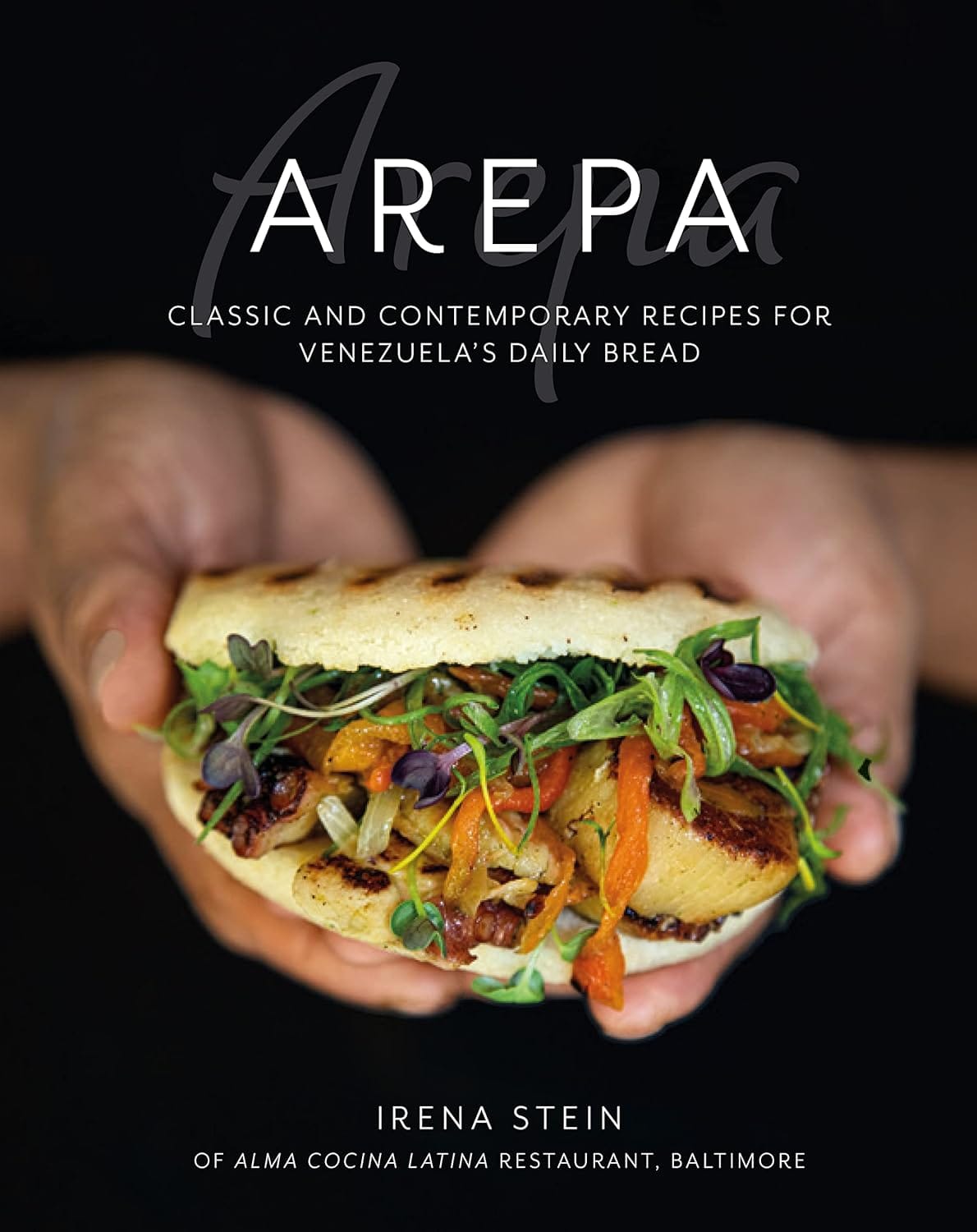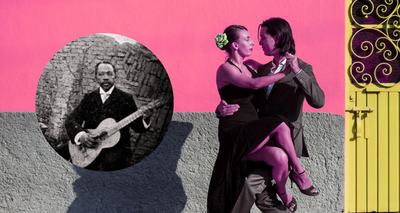For Latin Americans and U.S. Latinos, mealtime remains sacred, a family gathering space where food provides us with diverse flavors and nourishes the spirit. Its preparation is passed down from generation to generation, and the knowledge of elders is respected, as they often guide each dish. For some, our food and the Latin cookbooks we produce reflect resilience, cultural survival, or the immigrant experience.
With the intention of passing on the resilience of our people, preserving and showcasing the recipes that define us, several Latinx authors have created cookbooks that elevate our tradition and allow us to rekindle the flavors of the past with the ingredients we have on hand. We have selected five cookbooks that will change your palate and, without a doubt, give your kitchen a delicious 180° twist!
'Chicano Eats' by Esteban Castillo
"Chicano Eats" began as a blog where Esteban Castillo, a California resident, shared Chicano recipes—recipes that fuse Mexican flavors with ingredients available in the United States.
The idea for the blog came about when the author realized that the Mexican recipes he had grown up with at home were not the same as those he found online. Castillo noticed that what he had considered Mexican cuisine his whole life wasn’t entirely accurate. This is how Chicano Eats was born, a space that showcases the culinary evolution of Latin dishes in the United States. The blog quickly gained popularity within the Latin community, which led to it winning the Saveur Best New Voice People’s Choice Award.
Later, Castillo embarked on publishing a book, Chicano Eats, which includes a collection of 85 Chicano recipes characterized by combining traditional Mexican dishes with American influences. The book is available in both Spanish and English.
With this project, Castillo aims to honor his Latin roots, established in the Santa Ana community. Chicano Eats offers the possibility of creating a culinary space where the flavors of Mexico and the United States blend, showcasing the best of both cultures and the Chicano culture.
'The SalviSoul Cookbook' by Karla Tatiana Vásquez
Flor de Izote with Scrambled Eggs, Potato Stuffed Rellenos, and Salvadoran Pupusa are just a few of the dishes featured in The SalviSoul Cookbook. This book goes beyond traditional cuisine; its author, historian Karla Tatiana Vásquez, has woven a narrative that connects the art of gastronomy with the life stories of twenty-five Salvadoran women. Each recipe captures the experiences of those who shared them, turning each page into a conversation between friends and family.
El Salvador is a small country located in Central America, with a population of just over six million. Vásquez was born there and moved with her family to Los Angeles when she was very young. Thanks to her family, the author learned that gastronomy represents more than just a dish—it reflects the soul of each person.
Although she has no memories of El Salvador, she was able to connect with the memories of her mother and her beloved grandmother, Mamá Lucy. In their home, flavors came to life during the preparation process, as the kitchen was the perfect place to share stories of the past. These stories filled Vásquez’s mind with images, allowing her to see those coffee fields and mango trees that were thousands of miles away.
For years, Vásquez faced indifference from publishers, who told her that a Salvadoran cookbook was not of interest to the American public. However, she persisted, responding to each of these rejections with: “I am the American public” and “There are many people like me who want this book.”
Her perseverance finally paid off when she signed with Ten Speed Press, one of the most important cookbook publishers in the country. The SalviSoul Cookbook features eighty recipes representative of Salvadoran cuisine and the stories of the women who shared their culinary knowledge with the author. Within its pages, readers can find stories of love, loss, and survival.
'Amalia’s Mesoamerican Table' by Amalia Moreno-Damgaard
The Guatemalan Amalia Moreno-Damgaard has built an impressive career since she began in the world of international banking, where she held leadership positions at renowned banks. Years later, after the birth of her son, Moreno left the world of finance behind and trained at Le Cordon Bleu in Minnesota. After earning her degree, she founded her own business, Amalia Latin Gourmet, where she educates Fortune 500 companies about Latin culture and gastronomy.
This entrepreneur has fused two opposing elements—her cultural culinary heritage with her training in French cuisine. This combination has allowed her to elevate Latin American cuisine in the United States.
As is common in Latin American families, her love for cooking was nurtured from a young age by her grandmother, who taught her to work with fresh ingredients and ancestral indigenous techniques, where everything was used and reused consciously and harmoniously.
Her path, filled with success, has led her to be recognized as Woman Entrepreneur of the Year 2024 by the National Association of Women Business Owners (NAWBO). Moreno also mentors women entrepreneurs and is an ambassador of Latin culture, finding in cooking a vehicle to share her identity and roots with the world.
The author published her first culinary book in 2012, Amalia’s Guatemalan Kitchen. This work shares one hundred and seventy recipes inspired by Mayan traditions, adapted for modern cooks. The recipes are easy to follow at home and include vegetarian and gluten-free options. Her second book was published in 2021, Amalia’s Mesoamerican Table. In this book, the author expands her focus beyond Guatemala, exploring the rich culinary heritage of Mesoamerica, with more than one hundred and thirty recipes highlighting the cuisines of Mexico, Belize, Guatemala, El Salvador, Honduras, Nicaragua, Costa Rica, and Panama. Both works have been recognized internationally and have won the Best in the World award from Gourmand International, among others.
'Latinísimo' by Sandra Gutierrez Originally from Philadelphia and raised in Guatemala City, culinary journalist Sandra Gutierrez has carried with her the culinary influences that marked her early years.
During the creation of Latinísimo published by Penguin Random House, Gutierrez focused on highlighting homemade recipes from various Latin American countries, with an emphasis on those whose gastronomy is not widely known in the United States. The author reviewed old recipe books and spoke with local cooks to present a book that not only documents but also celebrates the region’s cuisine. Over four years, she reduced a list of nine thousand recipes to about five hundred for her book.
To conduct this research, Gutierrez had planned to visit twenty-three cities in Latin America. However, due to the COVID-19 border closures, the visits were not possible, so Gutierrez had to find other ways to gather the information. She reached out to local chefs, began taking online classes, and conducted interviews via Zoom.
Her work reflects the cultural exchanges that have taken place since colonial times and, more recently, due to migration. To encompass the diversity of the Spanish language, the Spanish edition includes a glossary to clarify regional terms.
Gutierrez is also the author of other titles, such as The New Southern-Latino Table. Her research is characterized by the need to preserve recipes that are at risk of disappearing.
'Arepa' by Irena Stein
The arepa is a round cornmeal patty cooked on a griddle or fried in a pan. This dish is much more than just ‘food’ in Venezuela; it is a symbol of national identity and tradition. The arepa can be filled with a wide variety of ingredients, from cheeses to innovative seafood combinations. Its versatility makes it suitable for breakfast, lunch, and dinner, and it is gluten-free.
In 2017, Irena Stein, the founder of the famous restaurant Alma Cocina Latina, had an idea that would change the international perception of the arepa. During a conversation with chef Enrique Limardo and a Venezuelan food distributor, Stein proposed creating something more ambitious than simply "doing something small" with arepa recipes. After researching, she discovered that there was no cookbook dedicated exclusively to this dish, so she got to work.
After being rejected by several publishers and with the help of writer Hilton Carter, Stein signed a contract for ‘Arepa’ with the British publisher Ryland Peters & Small. This cookbook was created with the collaboration of Venezuelan chef Eduardo Egui, based in Barcelona. Stein herself handled the photography sessions with her Canon camera, ensuring that every aspect of the book was meticulously crafted. Meanwhile, a translator in Miami made sure the recipes were accessible to a Spanish-speaking audience.

Arepa is not just a cookbook; it is a celebration of Venezuelan tradition, as arepas are a daily staple. With this book, Irena Stein shares a piece of her Venezuelan culture and her love for cooking, giving readers the chance to experience a different flavor.
Venturing into la cocina can be a challenge for some of us Trader Joes or take out chicas, but with the help of these Latinx authors, the kitchen can be a safe, fun space to reconnect with our ancestral roots and for next generations to come who are looking to discover more about their identity and the culture that defines them.






